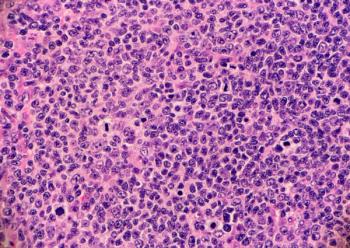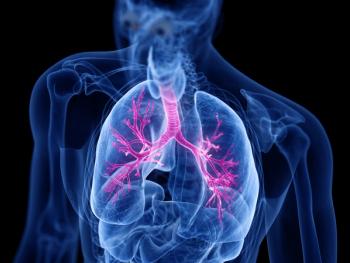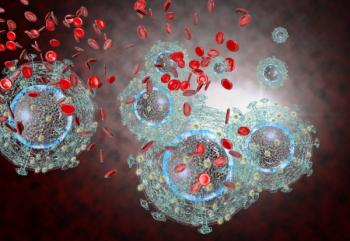According to the Food and Drug Administration (FDA), only 33 percent of drugs survive Phase II of clinical development. Mistakes by research professionals in designing and executing trials, interpreting results, or misunderstanding regulatory feedback can cause delays or the complete cancellation of a clinical trial. Delays aren’t cheap – in fact, according to a recent study from Cutting Edge Information, each day a clinical trial is delayed, pharmaceutical companies with potential blockbuster drugs lose as much as $8 million. More importantly, delays may cause the public to miss out on potentially life-saving treatments. The not-for-profit National Board of Medical Examiners (NBME) is working to reverse this trend with the introduction of the Certification of Excellence in Clinical Research (CECR), an assessment designed to test the knowledge of clinical researchers. This is the first time an exam has been developed by a third-party, independent organization that specializes in evaluating the wide spectrum of health professionals. Developed by a team of nearly 100 veterans in the clinical research field, the exam has two versions – one for investigators and scientists, and the second for clinical research monitors, associates, and coordinators. In this article, we will look at five ways a universal standard of knowledge will benefit clinical researchers: #1: Offers insights into strengths and weaknesses. The CECR assessment offers detailed feedback about areas of strength and areas where improvement can be made. This gives research professionals the tools they need to improve their performance. The exam uses realistic scenarios to assess a clinical researcher’s foundational knowledge in areas such as study design, ethics, and data management. In addition to a numerical score, test-takers will receive diagnostic information about their performance, enabling them to identify the need for additional individual training or experience. #2: Enhances training and professional development. A standardized assessment will allow clinical research professionals to identify paths of professional development based on the feedback they receive from taking the exam. Pharmaceutical companies, clinical research organizations (CROs) and university-based research consortia who encourage or require certification of their professionals will have a roadmap to help their staff develop professionally. #3: Improves trial efficiency. When researchers have the knowledge and tools they need to be successful, trials run more efficiently. This means fewer delays and less of an administrative burden placed on the team managing the trials. #4: Stimulates career growth. Assessments help clinical researchers – both coordinators and principal investigators – stay on the leading edge of their profession and showcase their hard-earned knowledge, making them more marketable to future employers. NBME’s certification is portable, so research professionals can take it with them as their career evolves. #5: Helps protect human lives. Clinical researchers have the potential to change, improve, and save lives. That’s why it’s critical that they are knowledgeable in their field. Establishing a universal standard through certifications like CECR will give trial participants confidence in knowing that the clinical research team has demonstrated knowledge. The bottom line Setting a universal standard of knowledge in clinical research is vital to improving efficiency and ensuring that all clinical researchers are prepared to do their part to protect the health and wellbeing of the public. After all, it’s our research, their lives. Leaders in clinical research have a responsibility to anticipate the next industry benchmark. We want to be confident that our clinical researchers-who are conducting research on human beings- have a strong grasp of the foundational knowledge needed to conduct safe and thorough clinical trials. Peter Katsufrakis, MD, MBA Dr. Peter Katsufrakis is a board-certified Family Physician and Senior Vice-President for Assessment Programs of the National Board of Medical Examiners. His responsibilities at the NBME include oversight of the Medical School Services and Medical Education and Health Profession Services programs, International Programs, the Post-Licensure Assessment Service, and the United States Medical Licensing Examination (USMLE) program. He is a past associate dean for student affairs at the Keck School of Medicine of the University of Southern California and has also served as national chair of the Group on Student Affairs of the AAMC. Dr. Katsufrakis received an MBA with honors from the University of Southern California in 1998, an MD from the University of California, San Diego in 1985, and a BA with high honors from the University of California, Berkeley in 1981. He served his internship and residency in family practice at Santa Monica Hospital and he is a Diplomate of the American Board of Family Medicine. Charles Victor Pollack, Jr., M.A., M.D. Dr. Charles Pollack holds multiple roles at Thomas Jefferson University in Philadelphia, Pennsylvania, including: Associate Provost for Innovation in Education, Director of the Jefferson Institute of Emerging Health Professions, Associate Dean for CME and Strategic Partner Alliances, and Professor and Senior Advisor for Interdisciplinary Research and Clinical Trials. From 2001-2015, Dr. Pollack was Professor of Emergency Medicine at the Perelman School of Medicine of the University of Pennsylvania and served as Chairman of Emergency Medicine at Pennsylvania Hospital in Philadelphia. Dr. Pollack has long been active in teaching and clinical research and is an international leader in emergency medicine. He is the only physician to have received the American College of Emergency Physicians’ highest national awards in both teaching and research.





